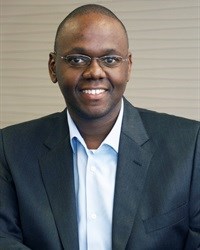[Communications] PR: the job for the decade
Media relations and media networks and content skills are needed in every organisation, every advertising agency, every digital agency and at every brand experience. I would venture to predict that PR/Communications professional is one of the top careers of the next decade.
And while traditionally a better paid job than media, hiring a PR agency is still more cost-effective and will give you faster turnaround and implementation, than most traditional advertising agencies and marketing communications firms.

The biggest danger remains the cannibalisation of PR skills and clients by digital and advertising agencies seizing on 'content' as the panacea to all brand spend and claiming to do it all. But they do not in the main have the media relations or content skills required. PR agencies need to fight back for their piece of the communications real estate by upskilling in critical social media and digital skills.
This of course hinges on tertiary institutions training young communicators properly; ongoing skills training in the workplace; and a broad knowledge of digital media and social media strategy and execution.
Ingrid Lotze (@ingridlotze), President-elect of the Public Relations Industry of South Africa (PRISA), says the communications industry needs to live up to its own potential. "Whether we choose to call ourselves reputation managers, PR practitioners, Marcom managers or integration specialists, we have the potential to be a crucial part of any and every board of directors, yet I still hear PR people name themselves as the 'poor cousins' (of the industry)."
After attending the October launch of #JumpstartZA, an initiative within PRISA which focuses on the 20 to 30-something's in the industry, Lotze warns that there is an urgent need for change.
"It is crystal clear that there is a loud cry for changes in the PR industry to happen quicker and in a more collaborative and integrated fashion. The up and coming generation of PR professionals is itching to get stuck in but they are facing a wave of resistance from a contingent of more conservative professionals, unwilling or unable to embrace changes that are well overdue.
"With digital subsuming practically all comms channels (other than good old human face-to-face contact), PR and communication are growing in influence and we are moving to the top table in the corporate world. The truth wants out, digital developments are enabling it, media have transformed to expose it and consumers - especially the millennials - want it. If we don't keep pace with the massive change we will become irrelevant," Lotze adds.

PR challenges
"Public relations agencies need to understand that we are no longer playing in the traditional PR space, we play in the content space," says Greg Forbes, group managing director, Lion's Wing Brand Communications.
A huge challenge, says Forbes, is that PR agencies are playing in the same space as digital agencies, which are playing in the same space as traditional advertising agencies. "This will either lead to higher degrees of specialisation or greater degrees of convergence. The challenge is defining who does what, especially in the instance of clients with multiple service providers. Clients therefore need to develop an understanding of what each company should be doing, and suppliers need to come on board and all work together towards the same objective."
Lebo Madiba, founder and managing director of PR Powerhouse, says there is now a clear shift from paid-media to earned-media, and shrinking marketing budgets have created immense pressure to deliver in PR (earned-media).
"The movement to digital has also escalated communications to a now accelerated consumer, which means that the need for always-on content has increased in order to keep up with clients marketing messaging demands. This has also opened the market up in such a way that consumers have become fragmented, we also have more brand competitors and more communication channels - we are faced with too many options.

"Our challenge as communicators is that we have not been able to lock down audiences; we have not been able to match them to the various mediums/platforms, which makes it complicated to measure effectiveness. What we need is more analytics, use of big data and precision in planning to ensure that client needs are met," Madiba says.
Reputation management is now also becoming the cornerstone of communications strategy, as Forbes explains: "Reputation has become a primary concern in every aspect of marketing communications. While there is space for creativity, it must always link back to the reputation of a company, a product, a service, or a person. Any communication made on behalf of a client must link back to enhancing their reputation. Increasingly, the behaviour of target audiences is affected greatly by the reputation of a business. One slip in this regard can lead to the downfall of a business or product."
Another challenging aspect for PR professionals in the communications industry right now is the fact that more clients are requesting that PR activities have a direct link to sales, particularly in the B2B sector, says Andre Fourie, strategic communications director, marcusbrewster.
"It's no longer enough that a campaign reaches X number of people and enjoys coverage in X% of Tier 1 publications - we now need to illustrate how that PR success translates into incoming sales leads and an actual, measurable impact on their bottom line. It's changing the way we construct PR campaigns and forcing us to be far more commercially minded in our approach."

Fourie believes that PR agencies are getting better at adapting to change in the industry and is excited about the increasing strategic choice to meet client objectives: "PR agencies are finding innovative new ways of delivering value to clients precisely because we've accepted that the old way of doing things is not the only way of doing. For many brands, there is still immense value in traditional PR. For others, their campaigns have far greater impact on social media platforms."
Talent tendering
Talent acquisition is what keeps Vincent Magwenya, CEO of Magna Carta Reputation Management Consultants, up at night.
"It is difficult to attract and retain talent, particularly talented black individuals who are highly sought after for their talents and to satisfy employment equity requirements. We find ourselves in a position where we increasingly have to compete with large corporates, who have deep pockets, when it comes to securing talent, rather than competing with our peers. Our industry also has a high turnover of talent. Typically, young talent will stay at a company for a maximum of three years before looking for the next opportunity."
Galia Kerbel, MD Greater Than and Greg Forbes, both highlighted the fact that talent acquisition has become a major headache for them too, as there is a disconnect with the skills taught at tertiary institutions and what is required in the market.
Forbes explains: "The industry is developing at a far greater pace than what tertiary institutions can keep up with. They are equipping students with specialist skills in a time when specialist skills can prove career limiting. You can specialise in certain areas, but not at the cost of a broad view of how everything works."

As Magwenya emphasises: "We are sometimes fortunately and unfortunately a mirror of our clients. How our businesses evolve is dependent on how our clients evolve and the expectations they have of us. Investing more in digital capabilities is sometimes reliant on convincing our clients to invest in a change of corporate direction, so our evolution is dependent on our clients and the media industry.
"The industry is certainly in touch with the changes taking place, but if our clients are slow to adapt, our pace is reduced to match theirs as we balance investments with short term financial and costs considerations," Magwenya adds.
Content explosion
Madiba is excited about the fact that PR is no longer only seen as an add-on in the marketing matrix. "Marketers rely on earned media to provide the conversational legs in helping prolonging their campaign messages.
"We've seen the explosion of branded content where companies are telling their brand stories in longer commercials hoping to create an emotive connection between them and the consumer - but it's not always the case. Marketing budgets are limited to broadcast one to three minute commercials which is then pushed to digital... Migrating the consumer between these two channels requires a level of PR else you lose the engagement connection. The growth prospect of branded content and the value that PR adds to it is exciting."
Madiba also believes that competition in the media space is also due to the fact that companies are often slow to transform.
"Keeping up with the pace has been a slow migration because most companies still work in the linear approach to marketing and communications plans. The explosion of television viewing moving to multiple devices; the excitement of people who still prefer reading printed articles and books; radio stations starting to sound fragmented because some we're not able to distinguish from another means the competition is becoming tougher across all media channels."

Technology is affording opportunities to be a lot more creative with content development, Magwenya emphasises, enabling them to assist clients in reaching far more audiences than ever before: "As the importance of traditional audiences has receded, so technology is giving us opportunities to be more agile and creative from both content and messaging perspectives for the benefit of our clients."
Media relations
Media relations is always a sticky topic, with both camps, media and PROs having lots to say about each other, but there is a growing recognition for the value each can add. As newsrooms get smaller and more junior and the insatiable need for content writes scripts for new media models on digital platforms, communications has an even more vital role to play for any newsroom or media operation.
As a B2B editor working in a hugely under resourced area for 20 years, I've always known the value of making the PRO a valuable 'extension' of your news gathering operation and building good relations, and I think this realisation is growing among savvy and experienced media workers. It is time to embrace more of a partnership model in media relations.
Media has seen unmitigated and relentless transformation, leading to smaller brands with less pages and less advertising, dwindling resources leading to mass retrenchments of senior journalists and editors over the past decade, and the disappearance of many formidable print products.
This all means that there is less opportunity for mass media distribution and more targeted, thoughtful public relations. The smaller newsroom and editorial team is an opportunity for a networked PR operation, provided the integrity of content is not compromised and an understanding of what is editorial and what is content marketing, remains clear.
Lotze says that there are indeed pockets of excellence in the industry where communications agencies and corporates have embraced the disruptive changes brought on by digital marketing and media transformation. "The challenge is that many in the industry have stayed in comfort zones which are still working for the moment. There will come a time soon where the industry as a whole will demand change as profits decline and operating costs increase."
Don't wait too long to repurpose yourself or your PR consultancy or communications department. We have seen what disruptor brands have done to many services industries (think Airbnb and Uber). Digital agencies are the 'Uber' challenge for communications firms. It is time for reinvention.





































